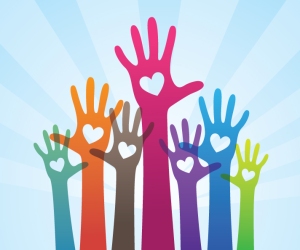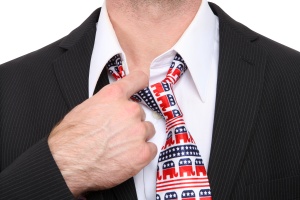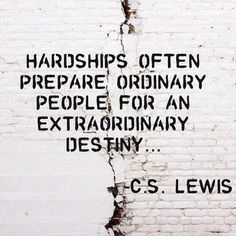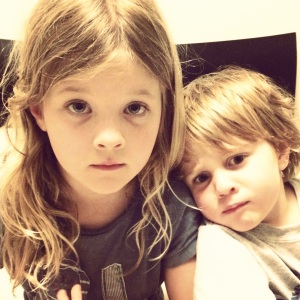I’m horrified by the chemical weapons attack in Syria. Anyone with a pulse and a heartbeat should be.
But what does it mean for Americans?
We are currently under an “America First” leadership policy. President Trump would say that “the people” have given him a clear initiative “Make America Great Again.” I wonder what a Great America does in the face of this current catastrophe?
I hope that you will all grant me a few assumptions:
- The United States of America is a world leader.
- The United States has tremendous power over other countries by virtue of where we spend our money and energy. (Energy includes military force, but also political humanitarian efforts.)
Knowing what a Great America should do is a very big, complicated question that I don’t have the expertise to answer. But it shouldn’t stop me from thinking about it in terms that DO make sense.
Let’s take it to the playground.
On any given playground there are groups/cliques/circles – call it what you will. Some are stronger than others, have more sway on the basketball court, deciding who gets to play and on what team. One group may rule the jumprope rotation, deciding who gets to be the jumpers and who holds the rope. Ask any kid and they’ll tell you, the rules of the playground are COMPLICATED. Nothing is never as it seems from the outside perspective, there are slight moves being made at every moment that dictate how recess will progress. Some days it ends in fights, other days it’s quiet.
One day your kid comes home with a black eye and a confusing story about how he got it. Something about a basketball, an agreement between 3 other kids, and a jumprope competition. You go to the leaders of the “free time” – the teachers, playground volunteers, and the administration looking for help.
The leaders have choices:
- Do nothing. Kids will be kids.
- Bring the class into a special session on bullying. Create new policies.
- Launch an incident investigation, whittle down the list of probable suspects, and enact a punishment.
Choice 1: Do Nothing
Your kid spends most every recess “volunteering” in the classroom, his academics begin to suffer, and it’s clear he’s unhappy. Unfortunately for you, you are in a one public school town, no money for private school, and no time to homeschool. You wait it out, hoping that things work themselves out. They don’t, they only get worse.
Choice 2: Special Session on Bullying, Create New Policies
Things improve slightly. You learn new ways to talk to your kid about how to handle a bully, and what to do if someone is getting bullied. The incident is out in the open, everyone is watching for signs of bad behavior. The instigators are quieted for a bit. There will be another incident, but now a policy is in place. New bullying sessions are convened, and the repeat offenders start to show themselves and are able to be dealt with on a case-by-case basis.
Choice 3: Probable Suspects Punished
Things may improve, or they may get MUCH worse. The bullying starts to occur in the shadow moments, off to the side, or off the playground completely. The tactics change from less visible black eyes to the shattering of all self-esteem. The bullying becomes less obvious to the leaders, but more sophisticated and treacherous to their victims.
What does this have to do with Syria?
We’ve already assumed we, the Great America, are a world leader. We have the ability to effect change on not one child getting bullied, but on hundreds and thousands of children who are suffering at the hands of dictator bullies, regime bullies, and rebel bullies.
We can do nothing and let the suffering go on for years, decades, and for many, their entire lives.
We can attempt to effect change by bringing everyone to the table. Look for solutions from a world perspective, creating policies and pacts that reduce the power of those who would do harm, and bolster those that would do better.
We can enact swift punishment, using missiles and ground troops. Altering the fight, forcing some into the shadows, and potentially alter the fight in some new, equally disturbing direction.
As a parent of a child, what would you want from your school leadership?
As a parent of a child in Syria, what would you want from your world leadership?
As a parent of this Great America, I want my leadership to work with all the leaders of the free world and look for solutions to the complicated problem that is Syria, maintaining in interest in the better for everyone, not just in the “better for us”.
I know it’s a silly analogy – a playground and a civil war zone – but it works for me on some level. It helps me evaluate my leadership’s response to this crisis. Despite what “caused” this catastrophe – a statement from the White House last week, or a decision from the U.N. Security Council four years ago – this is happening. And as a parent and an American, it would sadden me if we do nothing.
A Great America would do something, together with other world leaders, with great thought and deliberation. A Great America would lead efforts to protect the innocent. A Great America would choose it’s allies carefully, ensuring the good of the children and the good of the world remain our first priority, even if it means a little less time at recess for us.
What do you think the United States should do? Is there a better analogy to help me understand how to evaluate this situation and my leaders?
**A little side-note here: There are a lot of articles written on the topic of Syria, most of which require, at minimum, a college degree to understand; the majority requiring at least a degree in politics. There is not a lot written for the vast number of people who have neither. I’m a firm believer in doing the right thing, and in this situation it means engaging everyone in the conversation. Most adult Americans are parents, and maybe one parent to another we can have a dialogue about what the right thing to do might be without calling each other out as donkeys or elephants.
For reference, here’s just a few articles that informed me. Regardless of my political leanings, I do my best to source from several opposing outlets.
Worst Chemical Attack in Years in Syria – New York Times
Timeline of Chemical Weapons Use in Syria – Fox News
White House Response to Syrian Attacks – Fox News
Gas Attack in Syria – CNN
Syrian Gas Attack Reportedly Kills Dozens – NBC News




 I, like many Democrats, am feeling disheartened by the events of last night’s election. I had so much hope that today we would be celebrating the first female president, but instead I’m in mourning. In mourning for our country that is more deeply divided than I ever realized.
I, like many Democrats, am feeling disheartened by the events of last night’s election. I had so much hope that today we would be celebrating the first female president, but instead I’m in mourning. In mourning for our country that is more deeply divided than I ever realized.
 I see a lot of inspiring quotes in my social media news feed. Quotes from famous people who have gone on to do amazing things. I am motivated to do more, try harder, forgive faster, love stronger.
I see a lot of inspiring quotes in my social media news feed. Quotes from famous people who have gone on to do amazing things. I am motivated to do more, try harder, forgive faster, love stronger.

